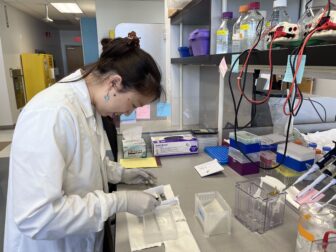Texia Loh

Targeting DNA Repair: A New Approach to Improve Treatment for Small Cell Lung Cancer
Abstract
Small cell lung cancer (SCLC) is an aggressive malignancy with limited long-term treatment success. The five-year survival rate remains around 7%. Although chemotherapy and radiation are standard first-line therapies, relapse and resistance are common. In SCLC, the cancer cells produce a high level of PARP enzymes, which help fix broken DNA so the cancer cells can keep growing and dividing. PARP inhibitors have shown promise in preclinical studies. However, early clinical trials yielded modest responses, emphasizing the need for strategies to enhance their effectiveness. DNA helicases are enzymes that “unzip” the DNA double helix, allowing the cell to repair its genetic material. Recent data suggest that loss of a DNA helicase enhances sensitivity to PARP inhibitors. Because helicases are traditionally hard to drug, we developed a novel small molecule drug that leverages the cell’s own protein disposal system to eliminate the helicase. Our initial results show that helicase degradation works synergistically with the FDA-approved PARP inhibitor Olaparib to suppress SCLC cell growth. This strategy may enable more effective, targeted treatments for SCLC.
Watch a Q&A with Texia
The PhRMA Foundation Predoctoral Fellowship will provide invaluable support for advancing my research training. This award will enable me to explore innovative approaches in drug discovery with the hope of improving patient outcomes.

